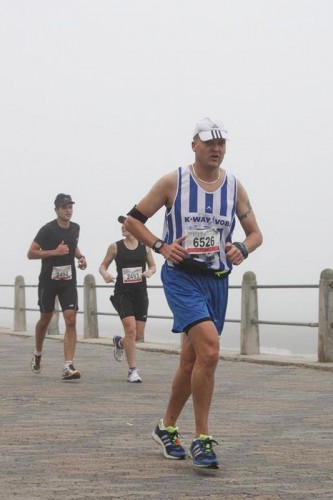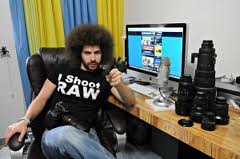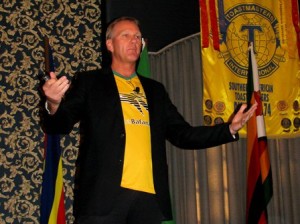 Here is a thought about running and goal setting. It is very seldom that I don’t have a big race coming up in the future, hence a lot of my runs are training runs for that race.
Here is a thought about running and goal setting. It is very seldom that I don’t have a big race coming up in the future, hence a lot of my runs are training runs for that race.
There are broadly two ways in which I often run: either just going out and enjoying the run, or by watching my watch all the time – checking my pace, heart rate etc.
But while I am almost always working towards a goal, I still want to enjoy the experience of the actual run, and to just be in the running moment. And I often find that when I am not really focusing on pace, heart rate etc and just enjoying the run (this happens mostly when I am having a slow cool-down run) I get a personal best (PB) on a segment of a route.
This week when I was running back home from St James I got a PB on the St James – Muizenberg segment, but it was meant to be a chilled and slow run after a hard race on Saturday. I have run that segment (quite literally) hundreds of times, but the time when I was just being present and not worrying about pace or goals is when I ran fastest. And at the time I genuinely thought that I was running slowly.
On Wednesday I went for an evening run up the mountain. But it was extremely hot (over 30 deg C). The uphill run was tough. I was sweating, out of breath and taking strain up the steep sections. But I was not particularly concerned because I knew the heat would play a big role in my performance. But when I analysed my data afterwards I realised that I had missed a PB on the green-belt climb by 2 seconds. Now 2 seconds is easy to catch up. In the hottest weather I have ever done that route, when I was not expecting to have a particularly good run, and I was not paying much attention I almost had my best time ever!
This happens a lot on races when I don’t have a particular target time in mind and I just go to see how the run goes. I have got a few PB’s from there. In particular the Gun Run 21k (1h53) and Hohenort 15km (1h17) come to mind.
What is the lesson here? I think that if you purely focus on your goals, and you only work towards achieving them you won’t enjoy the journey, and it may even slow you down. If you train, work hard and most importantly enjoy the experience you don’t need to worry about the goals; they will just happen.




 About six weeks ago, I had minor back surgery to sort out a problem with a slipped disc. A large part of the rehab process consisted of resting, with limited stretching and exercise.
About six weeks ago, I had minor back surgery to sort out a problem with a slipped disc. A large part of the rehab process consisted of resting, with limited stretching and exercise.